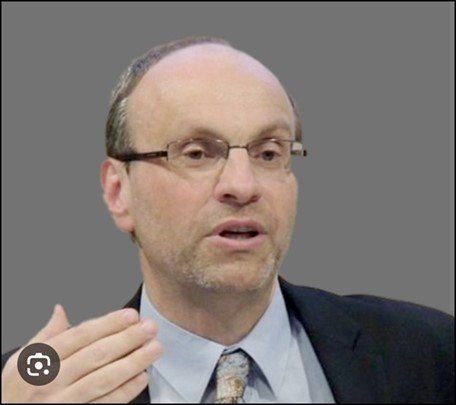By Millicent Senava Mannah
Prof. Stefan Nicholas Dercon, a Professor of Economic Policy at the Blavatnik School of Government and the Economics Department, and a Fellow of Jesus College at the University of Oxford, during an interactive breakfast engagement held on Thursday, February 8, 2024, at the Hub Hotel Conference Room, on Wilberforce in Freetown dilated on his book titled: “Gambling On Development”. He was speaking in an event, titled “How Ready is Sierra Leone for a Development Bargain,” organized by the International Growth Center (IGC).
Speaking at the conference, the author, Prof. Stefan Dercon intimated that he is here to explore the country’s readiness for a development bargain.
He noted that, in the last thirty years, the developing world has undergone tremendous changes. Maintaining that overall, poverty has fallen, people live longer and healthier lives, and economies have been transformed and that yet many countries have simply missed the boat. Why have some countries prospered while others have failed?
The Economist argued that the answer lies not in a specific set of policies but rather in a key ‘development bargain’, whereby a country’s elites shift from protecting their own positions to gambling on a growth-based future. He furthered that, despite the imperfections of such bargains, China is among the most striking recent success stories, along with Indonesia and more unlikely places, such as Bangladesh, Ghana and Ethiopia.
“‘Gambling On Development’ is about these winning efforts, in contrast to countries stuck in elite bargains leading nowhere,” he stated.
The Professor also revealed that his key areas of research interests concern what keeps some people and countries poor: the failures of markets, Governments and politics, mainly in Africa, and how to change that.
He revealed how he has worked extensively as a policy Advisor, providing strategic economic and development advices and promoting the use of evidences in decision making, including as the Chief Economist of the UK Department of International Development (2011–2017).
Building on three decades’ experience across forty-odd countries, Dercon winds his narrative through Ebola in Sierra Leone, scandals in Malawi, beer factories in the DRC, mobile phone licences in Mozambique, and relief programmes behind enemy lines in South Sudan.
Prof. Stefan, disclosed that he has weaved together conversations with prime ministers, civil servants and ordinary people, and that this is a probing look at how development has been achieved across the world, and how to assist such successes.
He emphasized that for a development bargain to thrive, it must embody three key features: long-term stability, self-awareness, and accountability adding how political commitment to development should be genuine and credible, backed by concrete actions, rather than mere official statements.
According to him, restraint among elites is significant as everybody yearns to be rich, including business persons as well as politicians urging restraint, especially in economic governance, where personal gain should not take precedence over the country’s development interests.
He said though corruption exists but it must not be seen as a symptom instead of the root cause maintaining the need for restraint in extreme behaviours, such as poorly implemented procurement contracts with massive costs or attempts to divert natural resource revenue for personal gain.
In proffering recommendations he mentioned the prudent management of natural resources the importance of thinking carefully about natural resource contract saying personal interests must surpass other things. He also admonished how in working with natural resources it must be ensured that incentives are in place and that the revenue is utilized for capital investment. because that’s how you should use natural resources. The Professor also cautioned how to spend adding that the Government must have certain restraints. He talked about putting a workable and judicious tax regime in place to drive revenue mobilization.
On his part the Country Director of the International Growth Centre Chukwu-Emeka Chikezie, intimated that Professor Dercon’s visit is geared towards engaging with a diverse audience in Sierra in order to explore ideas that are very pertinent to development. He underscored the importance of assessing State effectiveness with the objective of addressing recent challenges in order to navigate development in successful ways.
“In that context, the recent challenges we’ve been having in Sierra Leone are important signals that we should lean-in on and do more to think through how we navigate a potentially treacherous path and keep our eye on the development prize,” Chikezie stated. “If it works, it will lift many people out of poverty and frustration” he concluded.




